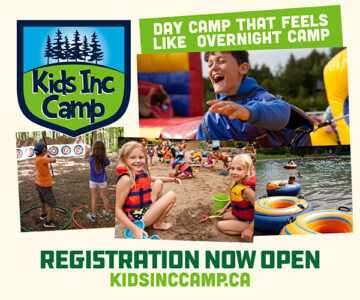So You Want to Be a Home-share Host?
If guests find a property sub-standard, they rarely keep their disappointment to themselves. Negative online reviews can scupper your business for weeks and months to come.
You’ve got an amazing property. You’ve got space. You’ve always had a yen to be an innkeeper. To find out if you have what it takes, check out these tips from the hosts we met.
Working with Airbnb
Home rental agencies – from traditional to online, such as Airbnb and VRBO – have different operating procedures. Airbnb, for instance, usually charges a 3 per cent fee for each reservation. As part of their online service, they verify your guests, handle the payment and offer $1 million in insurance. And they outline a host’s responsibility for checking into local laws and bylaws that could affect the rental.
Not sure what to charge? Wondering how to attract more reservations? Airbnb offers advice and encourages hosts to interact online and share what they’ve learned on the ground. “It’s like having a big brother and supportive business partner all in one,” says local host Bill Dandie.
Cleaning up
Yes, this takes time. After every guest’s visit you need to do a full clean, even if they stayed for only one night, explains the crew that tends to Cheltenham Suites. You will wash a lot of linens! And you’ll need to have a backup plan if you’re away during a changeover. Faced with that scenario this summer, Melinda Flach had brainstormed plan B. “If that hadn’t worked out, we’d have had to return early from vacation,” she adds. “It’s all part of the process.”
Communicating with guests
There’s a lot of this. Some hosts choose to split up the duties, dealing with online inquiries via email, for instance, then communicating with booked and current guests somewhat more personally via texting. Technology can also help ensure guests’ privacy and comfort.
From afar, for example, Glen Judge can use his iPhone to adjust the temperature of his Cheltenham Suites and to change the digital key code to ensure each guest has a specific, secure code.
Making the rules
Rules help make renting your property sustainable. As much as you’d like to be open-ended and flexible, you aren’t staffed like a hotel and can’t allow for check-in “anytime” or a check-out that doesn’t leave enough time to clean and prep for the next guests, Jill Baker explains. If you’re hosting a bridal party or corporate retreat, be diligent about confirming the number of guests and consider a charge for day guests and extra cleaning. Melinda Flach has learned bridal parties can quickly multiply into a large crowd there to share the excitement. Fabulous, yes, but some guidelines are necessary. And remember, not everyone reads or retains the rules and instructions for the property, so be prepared to repeat yourself and be firm.
Setting the bar
Reviews are very important in this business, and the owner’s standards must be of the highest calibre. As Grandma used to say, “Good enough never is,” so be prepared to offer the same standards you would expect in a destination. After all, if guests find a property sub- standard, they rarely keep their disappointment to themselves. Negative online reviews can scupper your business for weeks and months to come.
Getting noticed
It can be hard to stand out, Jeff Baker acknowledges. Consider what makes your property unique and use that as a hook. Are there any experiences your property or you as hosts can offer? Guided walks, photography lessons and massage therapy are all good bets. Both Bill Dandie and Ellen Brakel paired their remote retreats with massage therapy and yoga, and Jeff Baker’s cooking lessons are a great example of adding an extra incentive.
Related Stories

Airbnb and Other Home-sharing Companies Have Landed in Headwaters
Sep 16, 2017 | | CommunityHere’s how to find the log cabin, country estate or yurt of your dreams – for at least one night.







